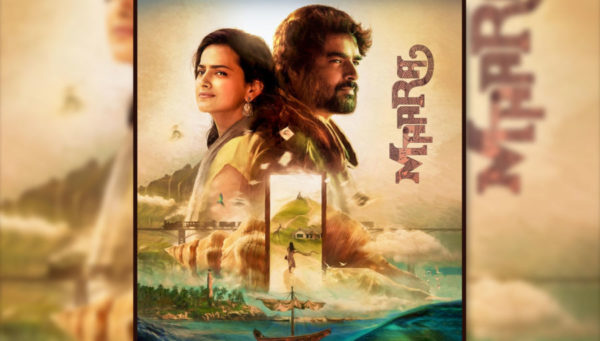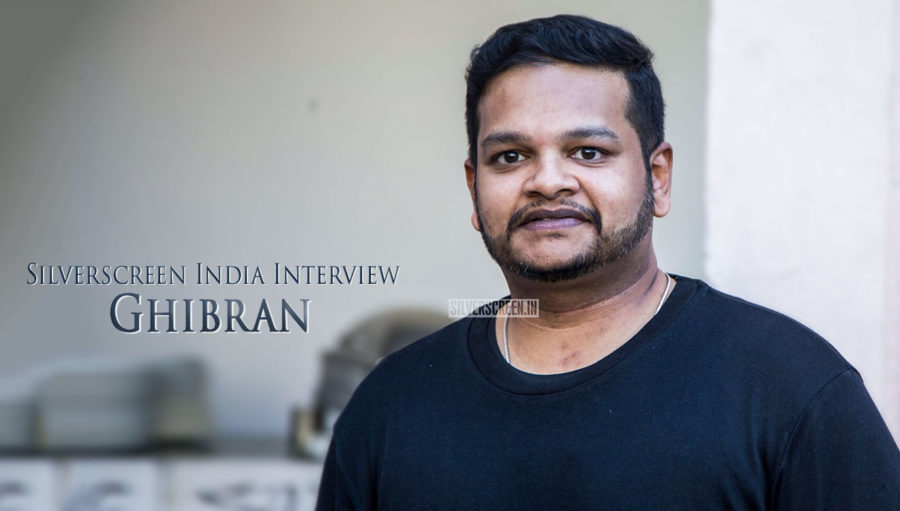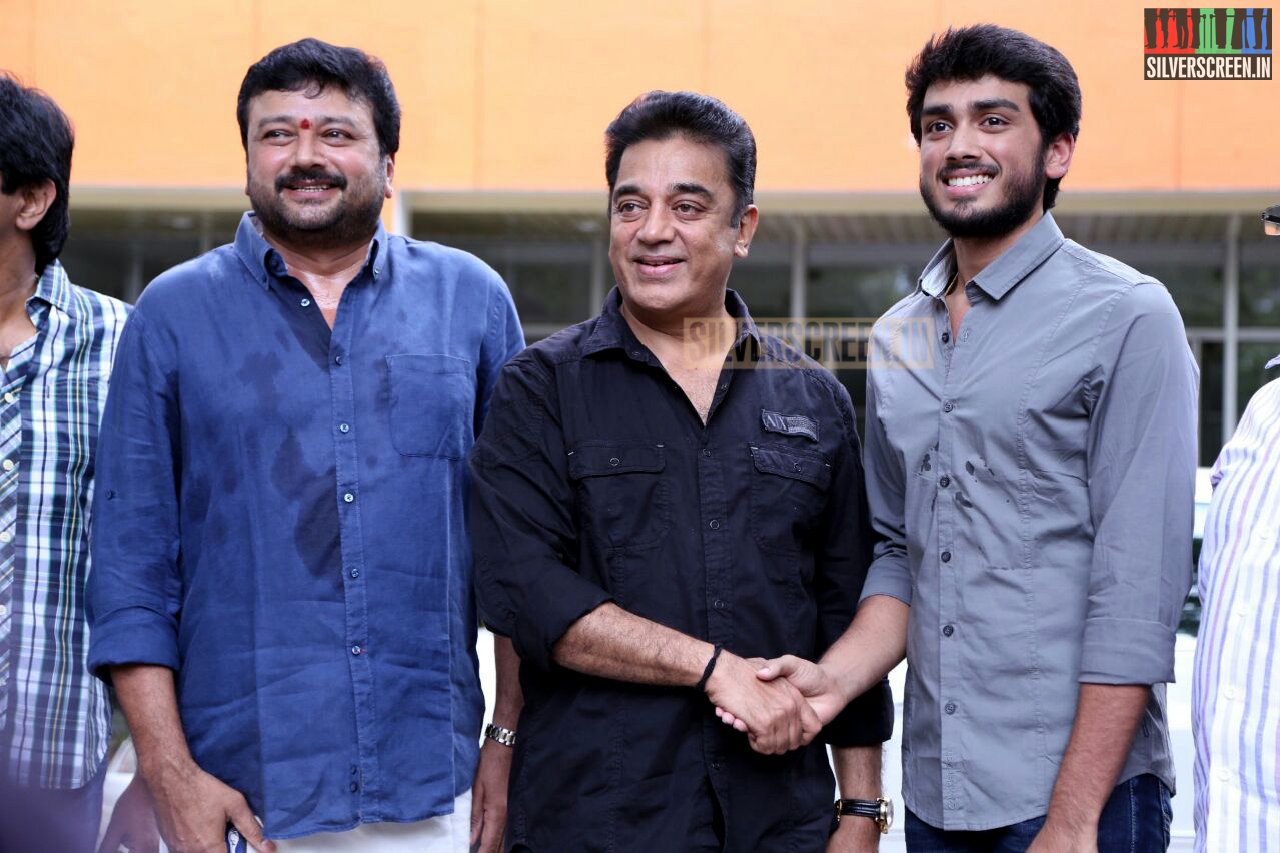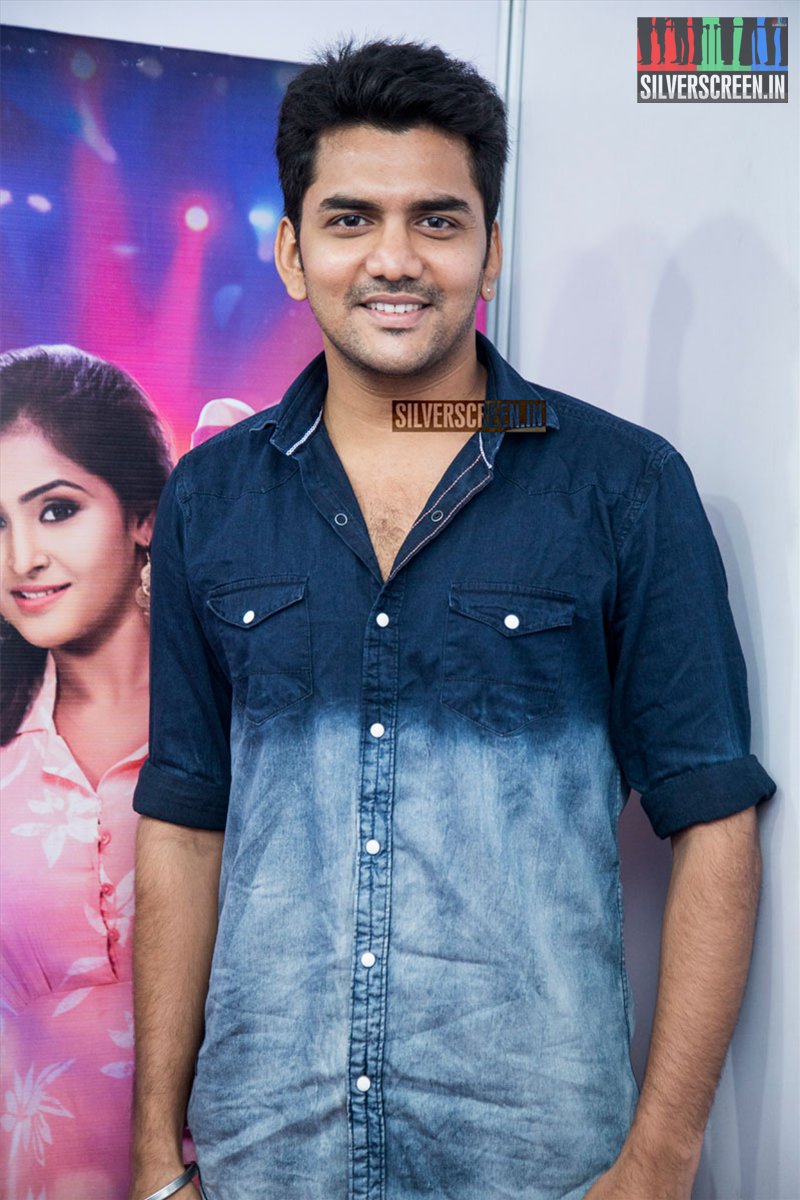Ghibran, the music director, started his career in 2011 with the Tamil romantic film Vaagai Sooda Vaa, that earned him several awards. Till 2020, the prolific composer has worked on over 30 films.
As 2020 draws to a close, Ghibran ends the year on a successful note with Maara, the upcoming Tamil romantic musical drama starring R Madhavan and Shraddha Srinath, for which he has rendered tunes.
The film’s trailer which released on Tuesday, shows Paaru (Shraddha) who travels across the country in search of a man named Maara (Madhavan) based on his paintings of a fairy tale. How she attempts to trace him and how they meet forms the crux of the story. The film’s trailer features traces of Ghibran’s upbeat tunes.
Ahead of the film’s release, Ghibran speaks to Silverscreen India about the film, the need for indie music to proliferate in India and how streaming services can pave the way for individualistic music.
Making the most
Ghibran says that the lockdown jolted him into working on independent music. He looked at the Covid-19 pandemic in a positive light and made decisions that helped him change direction, he says.
“The moment lockdown happened, the whole film industry froze. For the last couple of years, I wanted to work on independent music. When the lockdown occurred, like everyone, we [music directors] also suffered since no films were being released or shot. This is when I began working on a spiritual song series. I also worked on independent songs. I also wanted to complete my MBA degree for a long time. I chose to finish that during the period too,” he says.
In times of uncertainty, he says that being qualified in two or three professions is always a good fallback measure. This is where his MBA degree could come in handy, he says.
Aside from achieving personal goals, Ghibran has also composed light and empowering tunes to uplift spirits during the time of the dreaded pandemic.
In April, Ghibran, in collaboration with actor-politician Kamal Haasan, released the song Arivum Anbum based on the Covid-19 pandemic and the subsequent lockdown imposed by the Centre. The catchy number featured famous musicians and personalities- including Yuvan Shankar Raja, Anirudh Ravichander, Bombay Jayashree, Shankar Mahadevan, Sid Sriram, Devi Sri Prasad, Siddharth, Shruti Haasan, and Andrea Jeremiah.
“அறிவும், அன்பும்”
@RKFI @GhibranOfficial @anirudhofficial @Bombay_Jayashri @thisisysr #Siddharth @sidsriram @Shankar_Live @shrutihaasan @ThisIsDSP @themugenrao @andrea_jeremiah @lydian_official @thinkmusicindia #MaheshNarayanan #ArivumAnbum pic.twitter.com/hhTDU8QD0m— Kamal Haasan (@ikamalhaasan) April 22, 2020
Ghibran says that the lockdown did not hinder or limit the creativity of his peers. Many ended up spending long hours in their respective recording studios where they most felt at home, he says. The collaboration was a result of this “lockdown creativity”, he says.
“Kamal sir initiated the idea of this song. He knew that we were starting to feel a bit of the frustration and wanted to let people know that they were not alone during these times. I had all my equipment and we did remote recording to bring out the song,” he says.
Ghibran equates this song to a scene in the cult 1997 film Titanic. “When the ship goes down, musicians will be still playing. That is what we do,” he adds.
Maara
Ghibran says that like the fictitious ‘Heart of the Ocean’ diamond featured in Titanic, his music in Maara is the “heart of the film”.
“When Director Dhilip Kumar discussed the movie with me, he discussed that music was one of the main characters of the film. Where there are places where emotions can be best expressed through words that characters say, there are places where music too should act as a voice, to ensure that audiences feel inexplicable emotions,” he says.
Ghibran says that some people have made it fashionable to term movies with one or two songs as musicals. In Maara, it was different, he says.
“Once he conveyed that it was a musical, it became a dream-come-true moment for me,” he says.
Maara’s album has 10 tracks. The music director attempted to ensure that the texture of the sounds in the movie would align with the film. He is confident that since the all the songs have a similar “texture and tone”, people will not be tempted to skip songs while watching the film.
Ghibran values discussion and understanding the director’s vision before making the music. This is why he has several discussions in order to understand the musical palette, he says.
He says that he usually adds some Hindi words and some general gibberish in place of lyrics until the song is fully composed. Recalling a Maara-specific incident, he says “During the composition of the song Oh Azhagey (sung by Benny Dayal), I presented the song in Hindi. Maddy [Madhavan] liked it so much that he wanted me to do a Hindi version of the song. However, we knew that audiences would be put off if there is a Hindi track in the middle of the film. As a gift to him though, I did a Hindi version of the same song and added it as the tenth track of the film.”
Recommended
He says that although the film is a remake of the 2015 Malayalam film Charlie, the director put no pressure on him to replicate the music.
“Maara happens in three segments and I was trying to bring music out of these three environments,” he says.
Independent music
According to the director, while films like Maara could be packed with songs and present a coherent story, there is a also a place for music without the added baggage of visuals. He says that music has the power to survive independently without a visual medium and believes that the world of audio is well worth exploring.
Ghibran feels that the rise of OTT platforms will pave the way for the independent music industry as more people will search for new songs and give music a patient hearing, without the visual accessory.
“I have been listening to a lot of stories targeting OTT platforms. Many believe that the use of few or no songs is a bad move. However, I feel like this paves way to create independent movies. The slow separation of the two industries is good for music,” he says.

Maara-FL-900×511
“We are in a golden era. Any artist with the talent to create art, need not depend on an opportunity in films. If you are an artist who is capable of creating something, you can reach the masses without anyone’s help. Many are proving to be bigger than any film media and are challenging films by creating movies at their homes and studios. I think the golden era has taken off,” he says.
Ghibran says that he has a few film projects lined up and thanks OTT platforms for providing him with consistent work. “I hope we will overcome the second wave of Covid-19 soon. I am looking forward to a positive year,” he adds.
Maara will premiere on Amazon Prime Video on January 8. The film also features Mouli, Alexander Babu, MS Bhaskar, Guru Somasundaram, Kishore, and Abirami in pivotal roles.



